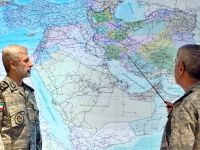The government of Dubai, the region's self-professed e-capital, will propel public service into the Internet age from October, forcing employees and companies to get web-wise or fall by the wayside.
"The whole idea of e-government is convenience for businesses as well as your average person," Shaikha Lubna Al-Qassimi, head of the e-government committee, told AFP. "We in Dubai want to bring people in for business, and the government can have no excuses for impeding that," she said. "The unified portal will be rolled out early next month. This means the initiatives are up and working and people are getting on-line."
Dubai's Crown Prince Shaikh Muhammad Bin Rashid Al-Maktum unveiled in April 2000 a project for a fully integrated system of "e-government" within 18 months, and warned officials they would lose their jobs if they refused to go electronic.
Aside from easing public access to ministries, a "unified access portal" linking all 27 government ministries is expected to cut administrative costs by around 10 percent, reduce paper work and increase transparency.
Microsoft Corp. said there was no reason to prevent Dubai's government from matching its targets, saying the Gulf's trading hub had the technical know-how and the political support required for such a move.
"The e-government program is well on track," said Noman Ahmad, Microsoft's e-government solutions specialist for the Gulf and Eastern Mediterranean. "People here are excited and are expecting change. Marketed effectively, especially to the corporate sector, I think it will take around six months for businesses to be comfortable making transactions on-line," Ahmad told AFP.
He warned, however, that many smaller companies would take longer to become accustomed to a business culture many consider an anathema to the norms currently practiced. "Companies in the United Arab Emirates realize that e-government is here to stay and that they need an e-presence," said Tareque Pirzada, chief executive officer of eGlobal Business Inc., the company hosting firms wishing to supply the government.
"Shaikh Muhammad is doing a great job in creating e-awareness," Pirzada told AFP. "It is a night and day difference from 25 years ago." "We're investing in the government because we know that the future is very bright for e-business in Dubai, which is seen as a safe haven, a small and neutral country with a great market."
But there are some doubts over the much-hyped project, designed, in the words of Sheikh Mohammad, to help the emirate catch up with the "giddying advances" of the West. "When it comes to doing business in the Gulf, the first price quoted is never the final one. There is always business to be done over coffee and face-to-face meetings," one businesswoman said.
As for the average citizen, Qassimi said that "people with no private access to the Internet will be able to go on-line at centers offering multiple services." "For the consumer, e-government is fantastic. It will automate manual processes, cut time and costs, increase access and promote competitive bidding," Pirzada said, conceding that businesses would still have to "manage relationships."
Dubai, one of the seven members of the United Arab Emirates, prides itself on efficient public services as it attempts to build a modern economy based on trade and tourism in the face of the impending exhaustion of its oil reserves. The UAE enjoys the best Internet penetration rate in the Arab world with an estimated 660,000 people, or 24.4 percent of the population, logging on. ― (AFP, Dubai)
by Luke Phillips
© Agence France Presse 2001
© 2001 Mena Report (www.menareport.com)








